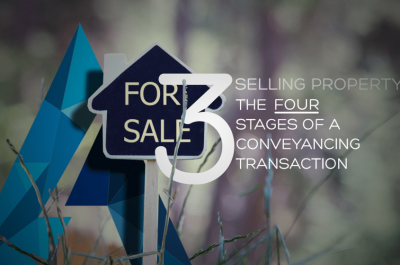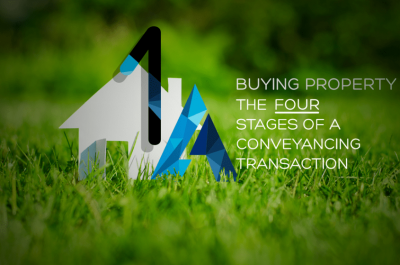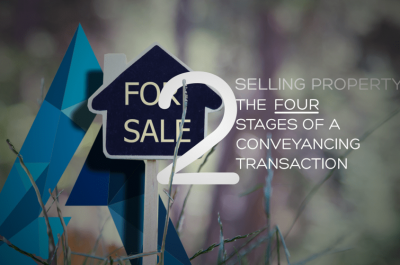The Four Stages of a Conveyancing Transaction – Part 3 Sellers
Unconditional stage means there is now a binding unconditional contract in place and failure to settle as provided in the contract will expose you to liability.

The Four Stages of a Conveyancing Transaction – Part 3 Sellers
UNCONDITIONAL STAGE – SELLER
INTRODUCTION
There are essentially four stages that cover the conveyancing process:
- Pre-Contractual;
- Conditional;
- Unconditional; and
- Settlement/Post Settlement.
Each of these stages offers its own risks.
UNCONDITIONAL STAGE
The importance of this stage, which occurs after all contractual conditions have been met but prior to settlement, cannot be understated as there is now a binding unconditional contract in place and failure to settle as provided in the contract will expose you to liability.
There are a number of important activities that you need to consider in this stage:
Transfer Documents
The buyer’s solicitor will have prepared Land Titles Office transfer documents that will the basis for the transfer of the land into their name so it is important that you liaise with any questions raised by them, including those relating to:
- Execution requirements; and
- Contact details after settlement.
Additional Documents/Information
You need to ensure that you have supplied your solicitor with any documents or information that they have requested, these will include:
- Power of Attorneys;
- Trust Deeds; and
- Certified copies of Identification Documents.
If in doubt you should call your solicitor to check that they are not waiting on any documents or information.
Sufficient Funds to Settle
You need to ensure that you will receive sufficient funds to meet all amounts payable at settlement. Your solicitor will liaise with you on this matter but will need to be able to contact you during this important period.
Your solicitor will usually send you a draft Settlement Statement at least seven days prior to settlement that will set out the total amount payable at settlement which will include:
- Amount payable to you under the contract;
- Adjustments for utilities to ensure that the cost for the current period are correctly allocated between you and the seller;
- Search fees (to the extent not already paid into your solicitor’s trust account); and
- Professional Fees (to the extent not already paid into your solicitor’s trust account).
You should review the draft Settlement Statement and advise your solicitor of any changes that you require as soon as possible.
Things to consider
The amount payable will need to cover the following:
Money Owed to Your Financier
You need to ensure that your financier is aware of the settlement date and that any problems with settling on this date are promptly communicated to your solicitor so that they can discuss the possibility of an extension if this is required.
You should also ensure that you have met any requirements that your financier has advised as a condition of discharge of their mortgage.
Your financier may deal directly with your solicitor but most banks and credit unions will require that you have supplied your solicitors contact details to them and authorised them to speak with your solicitor.
It is important that you are aware of the amount of funds required at settlement as the amount that you owe is likely to be increased by fees for loan and mortgage discharge processing and settlement.
Money Owed to Other Parties
You need to ensure that you have provided instructions to your solicitor in respect of any funds payable to other parties. Your solicitor will generally arrange for cheques to be raised to clear outstanding amounts to utilities but you should ensure that your solicitor is aware of any other cheques required.
Surplus Funds
You should ensure that you have advised your solicitor of where any surplus funds are to be paid.
Read our previous article on the Pre-Contractual stage of the conveyancing process for sellers.









SHARE THIS